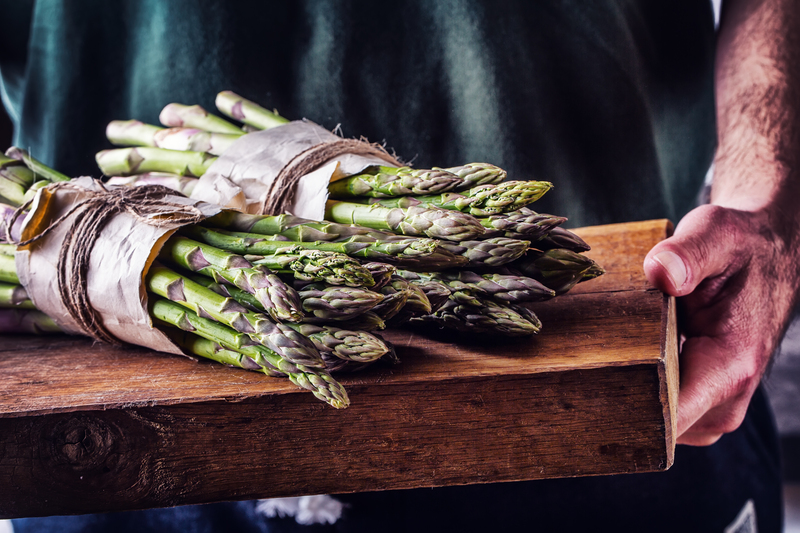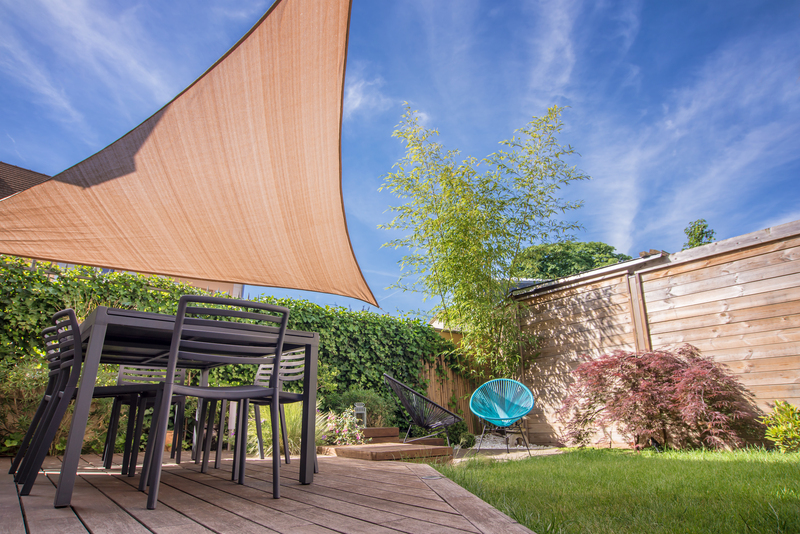Unlock the Secrets with 9 Beginner Gardening Tips
Posted on 28/05/2025
Unlock the Secrets with 9 Beginner Gardening Tips
Starting your own garden can feel like unlocking an entirely new world of possibilities. Whether you dream of a vibrant flower bed, a lush vegetable patch, or a mix of both, having a solid foundation is crucial. In this comprehensive article, we reveal the most effective beginner gardening tips that will help you cultivate a flourishing and healthy garden. Dive in to discover the secrets every new gardener should know!
Why Gardening for Beginners is Rewarding
Gardening is more than just planting seeds--it's about nurturing life, cultivating patience, and fostering a deeper connection with nature. If you're new to gardening, you may feel overwhelmed by all the information. But with the right gardening tips for beginners, you'll quickly find that the process is incredibly rewarding, not just for your outdoor space but for your mind and body as well.
- Reduces stress: Spending time in your garden is proven to lower cortisol levels.
- Promotes physical activity: Digging, planting, and weeding keep you moving.
- Enhances mental well-being: Watching your plants grow fosters a sense of accomplishment.
Whether your space is large or small, urban or rural, let's unlock these foundational gardening secrets to set you up for success.

1. Choose the Right Spot for Your Garden
Your garden's location is a critical starting point. Most gardening tips for those starting out highlight the importance of sunlight. Observe your yard throughout the day. Most vegetables, herbs, and many flowers require at least 6-8 hours of direct sunlight daily.
- Avoid low spots where water may collect and cause plant roots to rot.
- Think about convenience: The more accessible your garden, the more likely you are to tend to it.
- Proximity to water is a bonus--watering is far easier with a nearby source.
2. Understand Your Soil Type
Soil is the foundation of every successful garden. One of the most crucial beginner gardening secrets is to get to know your soil before planting. Different plants thrive in different soil types--sand, silt, clay, or loam--and each retains water and nutrients differently.
How to Improve Your Soil
- Test Your Soil: Use a simple test kit from your local garden store to check pH and nutrients.
- Add Organic Matter: Compost, manure, or leaf mold enhances soil fertility and texture.
- Mix regularly: Aerate and blend compost into your soil for better plant roots.
3. Start with Easy-to-Grow Plants
One of the best beginner gardening tips is to build confidence with easy-to-grow species. Some plants demand less care, forgiving mistakes and growing robustly under various conditions.
- Sunflowers: Hardy, tolerant, and cheerful pollinator attractors.
- Marigolds: Pest-resistant and perfect for bright borders.
- Salad Greens: Lettuce, spinach, and arugula grow quickly, even in pots.
- Herbs: Basil, mint, and chives thrive in containers or garden beds.
- Tomatoes: Choose bush (determinate) types for easier, compact growth.
4. Learn When and How to Water
Proper watering is a common stumbling block for beginners. The secret is to water deeply but less frequently--encouraging roots to reach deep into the soil. Overwatering can be as damaging as drought.
- Morning is best: Watering early reduces evaporation and disease risk.
- Check the soil: Stick a finger into the soil. Water if it feels dry 2 inches down.
- Use mulch: A layer of straw, leaves, or wood chips helps soil retain moisture.
- Avoid wetting leaves to minimize fungal issues, especially in humid areas.
5. Mulch for Healthy Plants
Mulching is a simple garden tip for beginners that yields impressive benefits. Mulch:
- Suppresses weeds by blocking sunlight.
- Retains soil moisture, reducing watering needs.
- Regulates soil temperature to protect roots.
- Adds nutrients as organic mulches break down.
Apply 2-3 inches of organic mulch around your plants, avoiding direct contact with stems to prevent rot.
6. Feed Your Plants Properly
Just like humans, plants need nutrition to thrive. One of the essential beginner gardening secrets is balanced fertilization. Avoid overfeeding, which can stunt growth or cause "fertilizer burn."
- Compost: Homemade or store-bought, it's packed with beneficial microbes and nutrients.
- Slow-release fertilizers: These provide nutrients steadily throughout the season.
- Special blends: Use formulas made for your specific plants (tomatoes, roses, etc.).
- Natural amendments like bone meal, fish emulsion, or seaweed are gentle and effective.
Always follow the instructions on fertilizer labels and adjust according to your soil test results.
7. Practice Smart Plant Spacing and Staking
Another valuable beginner gardening tip is paying attention to how much space each plant needs. Crowding leads to poor airflow, higher risk of disease, and stunted growth.
- Read seed packets: They provide guideline distances for each crop.
- Staking and trellising: Use stakes, cages, or trellises for tall or climbing plants like tomatoes, beans, and cucumbers.
- Allow for maturity: Picture the plant at full size and give it room to grow.
Always consider the mature size of your plants, not just the small seedlings you transplant.
8. Identify and Control Pests Naturally
Dealing with pests is an unavoidable part of gardening. Nevertheless, many new gardener tips emphasize natural solutions that protect your plants--and the environment.
- Encourage beneficial insects like ladybugs and lacewings to combat aphids and caterpillars naturally.
- Hand picking: Remove visible bugs or eggs for small infestations.
- Neem oil or insecticidal soap: Gentle solutions for common pests.
- Practice crop rotation and companion planting to confuse or repel pests.
Inspect your garden regularly, especially the undersides of leaves, and act at the first sign of trouble.
9. Celebrate Small Wins and Keep Learning
Many gardening tips for beginners stress patience and perseverance. Not every plant will thrive, and some failures are inevitable as you learn. Cherish every little success--be it your first sprout, blossom, or harvest.
- Take notes in a gardening journal about what works well (and what doesn't).
- Photograph progress: Celebrate milestones, no matter how small.
- Join local gardening groups or online communities for support and advice.
- Read books and reputable gardening blogs for advanced tips as your skills grow.
Extra Tips for Beginner Gardeners
- Choose quality tools--a good trowel, pruner, and gloves make gardening enjoyable and productive.
- Start small. A few pots or a small bed allow you to master the basics before expanding.
- Label your plants. Especially when growing from seed, tags help you track what's flourishing.
- Be kind to yourself: Mistakes are how every gardener learns!

Unlocking the Gardening Secrets: FAQs
What are the best plants for beginner gardeners?
Some of the easiest plants to grow for beginners include lettuce, radishes, beans, marigolds, sunflowers, mint, and zinnias. These plants are hardy, quick-growing, and generally pest-resistant.
How often should I water my new garden?
A general rule is 1 inch of water per week, but this varies with season, soil, and specific plant needs. Always check the top few inches of soil first--if it's dry, time to water.
Can I start a garden without a yard?
Absolutely! Container gardening is ideal for balconies, patios, or even sunny window sills. Many vegetables, herbs, and flowers thrive in pots with the right care.
Conclusion: Embrace the Journey with These Gardening Secrets
Unlocking the secrets of effective gardening as a beginner means setting up your space, understanding your plants' needs, and embracing a willingness to learn from every season. With these 9 beginner gardening tips, you're already well ahead of the curve. Remember: gardening is a journey--each new leaf or bloom is a small victory to be cherished.
Ready to transform your outdoor space? Start small, stay curious, and most importantly, enjoy the many rewards of gardening!
If you found these gardening tips for beginners helpful, share them with friends and family--and get growing together!
Latest Posts
Grow Your Privacy with These 9 Fast-Growing Hedges
The Ultimate Guide to Herb Garden Mastery
Elevate Your Outdoor Experience With Stunning Garden Seating



